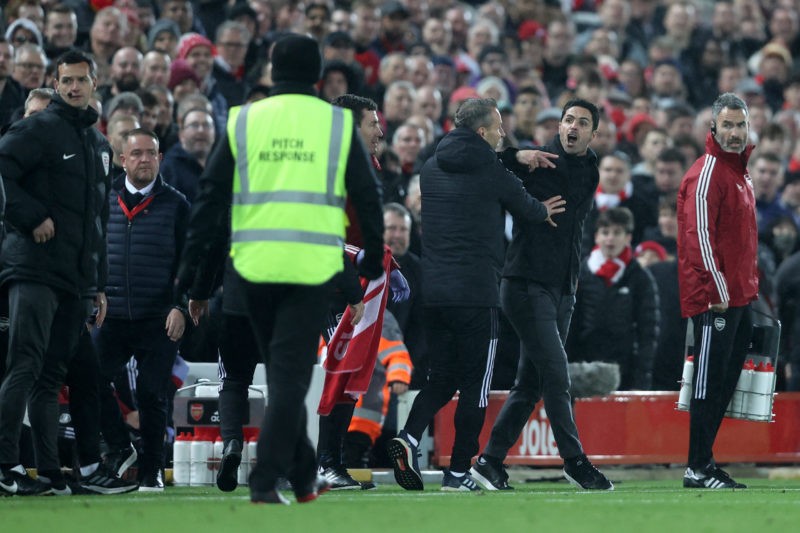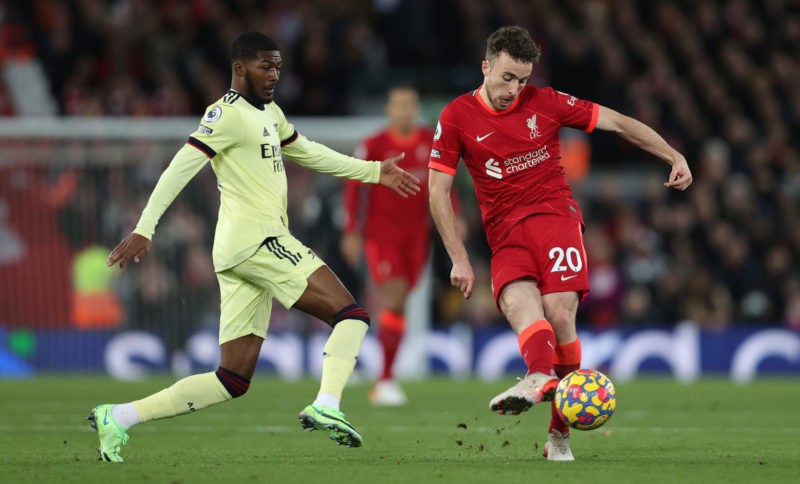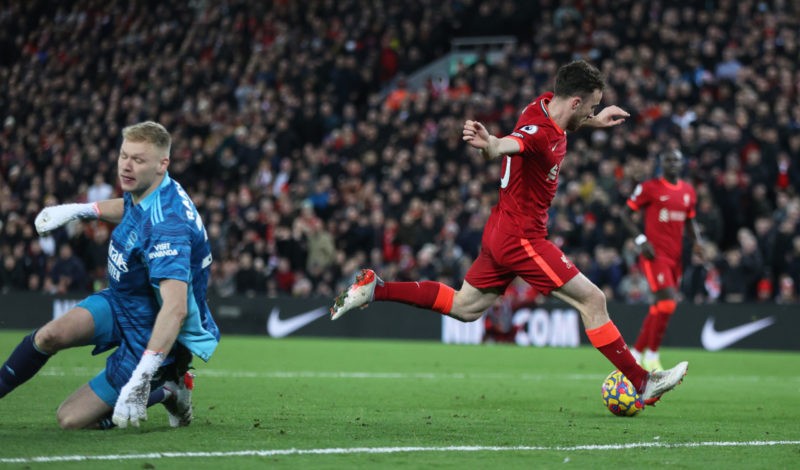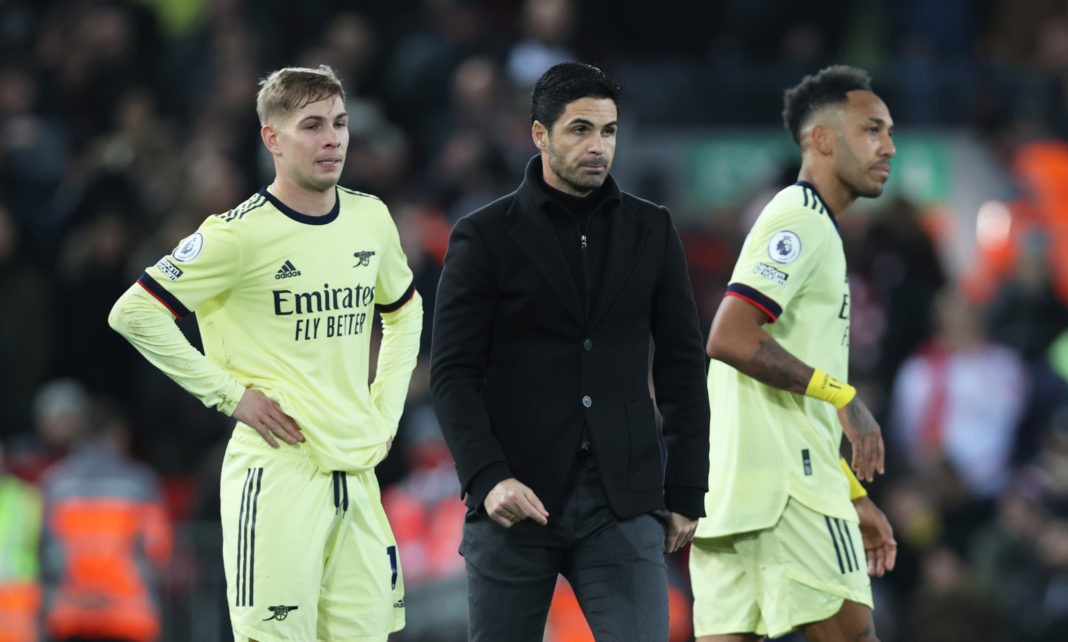Arsenal gave Liverpool a better run for their money than we have seen from them at Anfield in recent years but Liverpool preyed on psychological weaknesses to tear Arsenal apart in the second half. The good news is, these can be fixed.

Arsenal haven’t collected a point in the league from Anfield since 2016 and you have to go all the way back to 2012 to find the last time they left with three.
There might have only been two points between the teams going into this game, but in those fine margins lie massive differences.
The main thing Liverpool did was steal a split-second from young players still trying to assimilate Mikel Arteta’s intense tactics.
At the top level, that’s the difference between being title challengers and a team only starting their ascent up the hill.
Arsenal had less time to think on the ball and errors were forced too often to be able to claim anything from this game, even dignity.
I was reading a collection of essays by Malcolm Gladwell and one entitled ‘The Art of Failure’ made me think of this young and inexperienced Arsenal team.
“Human beings sometimes falter under pressure,” Gladwell writes in his piece. “Pilots crash and divers drown. Under the glare of competition basketball players cannot find the basket and golfers cannot find the pin.
“When that happens, we say variously that people have panicked or, to use the sports colloquialism, choked.”
Implicit v explicit learning

When you’re learning a new skill, you learn explicitly. That’s what Mikel Arteta is asking his team to do.
He wants them to take specific steps, as instructed.
But, as you repeat your lessons your learning starts to become implicit – it becomes second nature to you. That takes time. There is no short-cut.
Sports people are at their best when they are playing from an implicit level. It’s what we mean when we talk about it being natural for them. It’s what we saw from Liverpool on Sunday.
There is no effort. Their movements are fluid and the split-second advantage that comes from an implicit action versus a thought-out explicit one is the difference between champion and loser.
Or four and nil.

The problem is, when pressure is applied, it can cause some people to stop reacting implicitly, returning to the state of almost near beginner as they run through in their head all the steps they would usually play out instinctively.
You get more in your head, coaching yourself, commanding yourself, berating yourself. You are not fluid anymore but jittery, your game doesn’t flow, it falters.
What we saw on Sunday was a perfectly example of Liverpool players targeting Nuno Tavares, Albert Sambi Lokonga and Takehiro Tomiyasu to push them from implicit to explicit so they could take advantage of the ensuing mistakes, which they did repeatedly.
Mikel Arteta was at a loss as to how to stop it.
That’s not the worst thing in the world. They will learn more from this defeat than any of the previous 10 games when they were unbeaten.
With more time, Arsenal players, like Liverpool ones, won’t need that split-second extra.
We just have to form a protective bubble around Aaron Ramsdale until such time as that split-second no longer matters.

